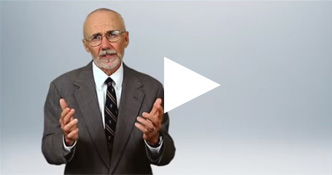Mentoring Can Make All the Difference in Nonprofit Leadership
You have made it! You have made the jump from individual contributor to managing your own team or organization. It is a good time to reflect on how you arrived here – and how mentoring from other nonprofit leaders can serve as a valuable guide when navigating this new frontier.
The age-old question has been asked and pondered for generations: Are leaders born, or are they trained and developed? Based on my personal experience with over 40 years as an Executive Director/CEO hiring and developing staff leadership, both components have validity and merit.
On the “born leader” side of the equation, it becomes very difficult to measure and quantify. But we all have seen it. We all have known individuals who seem to be gifted with intangible qualities that others are attracted to and look to for leadership.
But even the top professionals gifted with leadership qualities need guidance, training, and yes, mentoring. Utilizing a mentor for help and support to become an even more effective leader can be a critical component that makes the difference between success and failure. An effective mentor helps you deal with your new level of responsibility. And let’s be honest, all of us have blind spots that need shrinking with feedback from a trusted mentor.
I know when I became a new Executive Director of a small, but historically successful nonprofit, there were times in the first year when I had no idea what I was doing. I had no idea how to handle situations that presented themselves with no clear and obvious approach, allowing me to move forward. I struggled to come up with good decisions on my own that provided confidence that I was moving in a direction that would build on the organization’s success.
When this inevitably happens, where will you turn to process complex situations which emerge? Who can you trust, and who is the most appropriate person or group to consult with? Would it be members of your staff you are just now getting to know? Would it be your board president or a board member who might be taken aback by your indecision? Would it be your former trusted supervisor who knows little about the new organization you now lead? Or is there an independent professional with extensive experience who can be accessed and trusted to help you think through and discuss complex issues that have presented themselves? A mentor and mentoring process can help you build your leadership skills and self-confidence to make the right decisions in your new environment.
When faced with a difficult situation or new circumstance, every nonprofit leader can experience moments of self-doubt and insecurity. That sure happened to me, and more than a few times. These can become confusing moments when there is risk to become “our own worst enemies” with indecision and mistakes. Or we can seek out trusted guidance and assistance to help us successfully navigate these moments in time.
Commonly, the mentor has no magical answers to the situation you are facing. But they have the skills to listen and empathically understand, to ask questions and offer feedback out of their extensive experience to help you think through the issues you are facing. The mentor helps you discover the most appropriate movement forward that works best for you and your organization.
It can be lonely and scary being the sole individual designated to guide a nonprofit for which you have just been hired to lead into the future. Who can you trust and feel safe to help you identify your strengths? Maybe more importantly, who can you trust to identify your weaknesses and develop strategies to grow these into strengths and assets to make the full transition to a successful, seasoned leader?
Additionally, since COVID, the virtual platform or hybrid forms of leadership have grown and are being utilized with increasing frequency. In many nonprofits, this type of virtual leadership is the new normal. These new leadership models require emerging skills and new approaches toward building an effective team over time and distance. Often, the virtual leadership model can make the transition process even more daunting. Again, these leadership challenges and others can be discussed and worked through with an effective mentoring process. This process may be structured one-to-one or in a small group with other executive directors facing similar challenges.
At The Moran Company, the search process that helps nonprofits identify, recruit and hire their next Executive Director or CEO is central to our mission. But we also are strongly committed to the development of a mentoring or coaching process that helps the new hire be successful as they bridge the transition to the new organization, its board, and existing staff. We recognize this is not an easy transition. And we recognize the incredible value of the gifted mentor and mentoring process that makes all the difference for the new leader.
I hope this reflection helps you consider the utilization of a mentoring program. If you or your board president would like to learn more about The Moran Company’s mentoring options in the form of peer coaching groups that are available at the conclusion of our nonprofit executive search services, feel free to contact us. A member of our team will help you determine whether this is an appropriate direction and need for you and your nonprofit organization. In most cases, the benefit of an effective mentoring program for an Executive Director or CEO cannot be overstated.
No matter what stage of your career, a mentor’s wisdom is always valuable. And at some point, you will find that your skills and experiences can help others as well. Experienced leaders, please consider furthering the profession by sharing your knowledge with others as a mentor. I speak from experience when I say that being a mentor is just as rewarding as learning from a mentor!
By Mike Brose
Senior Search Consultant
The Moran Company
“We Find Great Nonprofit Leaders”
Posted in Executive Search Articles
Subscribe
Join more than 10,000 nonprofit professionals, community leaders and board members who receive e-mail updates from The Moran Company.






